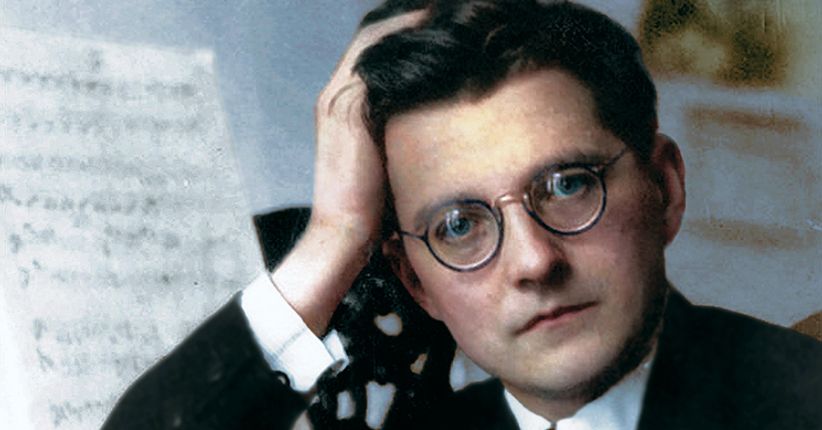Early Life and Education
Dmitri Dmitriyevich Shostakovich was born on September 25, 1906, in Saint Petersburg, Russia. His family was musically inclined; his mother, Sofia Vasilyevna Kokoulina, was a talented pianist who provided Shostakovich’s first piano lessons. His father, Dmitri Boleslavovich Shostakovich, was a chemical engineer. Shostakovich demonstrated an early talent for music and began composing at a young age. He was accepted into the Petrograd Conservatory at the age of 13, where he studied under prominent composers such as Alexander Glazunov and Maximilian Steinberg.
Early Career and Rise to Prominence
Shostakovich’s early works quickly gained attention. His First Symphony, composed as his graduation piece at the age of 19, was a critical success and established him as a significant new voice in Soviet music. This piece showcased his technical skill and innovative orchestration, traits that would characterize much of his later work.
In the 1930s, Shostakovich composed several significant works, including his opera Lady Macbeth of the Mtsensk District (1934). This opera, notable for its bold themes and modernist approach, initially received praise but later became the subject of severe criticism from Soviet authorities.
Conflict with Soviet Authorities
The mid-1930s marked the beginning of Shostakovich’s complex relationship with the Soviet government. In 1936, an anonymous article in Pravda, widely believed to be orchestrated by Joseph Stalin, denounced Lady Macbeth of the Mtsensk District as “muddle instead of music.” This denunciation placed Shostakovich under immense pressure, and he subsequently withdrew his Fourth Symphony before its premiere, fearing further backlash.
Shostakovich responded with his Fifth Symphony in 1937, which was presented as a “Soviet artist’s creative response to justified criticism.” The symphony was well-received by both the public and the authorities, striking a delicate balance between personal expression and adherence to Soviet artistic policies.
World War II and the Leningrad Symphony
World War II had a profound impact on Shostakovich. During the Siege of Leningrad, he composed his Seventh Symphony, also known as the “Leningrad Symphony.” This work became a symbol of Soviet resistance and resilience and was performed in besieged Leningrad in 1942, a performance broadcast across the Soviet Union and internationally.
Post-War Period and Continued Challenges
The post-war period was marked by a second wave of governmental pressure. In 1948, Shostakovich, along with other prominent Soviet composers, was denounced by the Communist Party for “formalism,” accused of writing music that was too complex and not in line with socialist realism. This condemnation forced Shostakovich to publicly repent and adapt his style to conform to state demands.
Despite these challenges, Shostakovich continued to produce significant works. His Tenth Symphony, composed in 1953 shortly after Stalin’s death, is particularly notable. This symphony is often interpreted as a depiction of the composer’s relief and reflection on the tyrannical regime’s end.
Later Years and Legacy
In his later years, Shostakovich’s music continued to evolve. His later symphonies and string quartets are marked by a deep introspection and often a somber, reflective tone. Works such as his Fifteenth Symphony and his final string quartets are considered some of his most profound and personal compositions.
Shostakovich also held various teaching positions, influencing a new generation of Soviet composers. He served as a professor at the Leningrad Conservatory and the Moscow Conservatory, mentoring students and contributing to the development of Soviet music education.
Death and Posthumous Recognition
Dmitri Shostakovich died on August 9, 1975, in Moscow. His death marked the end of a tumultuous yet extraordinarily productive career. Posthumously, Shostakovich’s reputation has only grown, with his works being performed and studied extensively worldwide. He is remembered as one of the 20th century’s most significant composers, whose music encapsulates the complexities and contradictions of life under Soviet rule.
Shostakovich’s legacy is characterized by his ability to convey deep emotion and commentary through his music, often navigating the fine line between personal expression and political constraint. His works continue to resonate with audiences, providing a powerful testament to his resilience and creativity.


Comments are closed